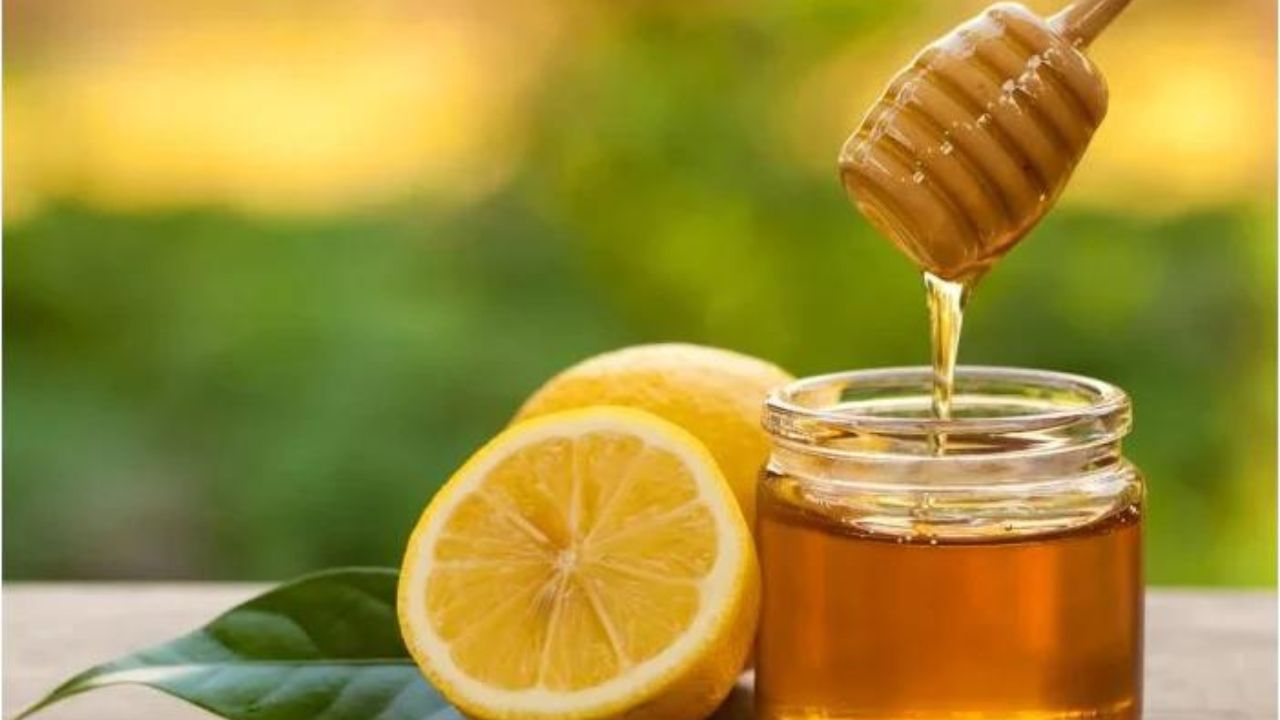Remember those times when your grandmother recommended a spoonful of honey and lemon for that niggling cough? As contemporary as our medical advancements may be, there’s a certain charm and undeniable effectiveness to this traditional remedy. Rather than reaching for the store-bought cough syrup, why not turn to this natural duo that not only soothes the throat but also fortifies your immune system? Dive in with us as we explore the wonders of honey and lemon.
Understanding the Power Duo: Honey and Lemon for Coughs
First things first, let’s address the elephant in the room: Why do we even cough?
At its core, coughing is our body’s defensive mechanism against irritants in our throat and airways. Think of it as a built-in cleaning system where unwanted guests like pathogens are shown the door. The process involves our brain signalling our chest muscles, causing a robust inhalation followed by a forceful exhalation – this effectively clears mucus and foreign bodies.
Yet, problems arise when excessive mucus accumulates, leading to persistent coughing. This can rob us of sleep and disrupt our daily routines.
Intriguingly, a recent study encompassing 74,977 individuals in the US revealed some telling numbers. Of these participants, 3,654 reported dealing with chronic coughs over the past year. This results in a prevalence rate of 4.9%, with a noteworthy observation: women, especially as they age, tend to experience this more (5.2%) as compared to their male counterparts at 4.7%.
So, next time that cough lingers, perhaps a nod to tradition with a mix of honey and lemon might just do the trick. Stay with us as we continue to delve deeper into the many benefits of this remarkable combination.
The Magic Potion: Honey and Lemon for Cough
There’s an age-old belief that reveres the union of honey and lemon as an antidote to persistent coughs. Interestingly, this conventional wisdom has now found its supporters in modern medicine, largely due to the duo’s unparalleled ability to comfort a scratchy throat.
Individually, honey and lemon are powerhouses in the world of natural remedies. But together? They morph into a remedy nothing short of magical, especially when dealing with that irksome cough.
Unlocking the Secrets of Honey:
World Health Organisation’s Seal of Approval: The WHO endorses honey as one of the premier demulcents for combating coughs. Its intricate chemical and nutritional composition underpins this recommendation.
Nature’s Antibiotic: Honey is known to possess antibacterial properties, which play a pivotal role in eradicating pathogens that instigate coughs.
Nutrient-Rich Profile: Honey is brimming with essential minerals such as potassium (with 100g offering 52 mg), calcium, manganese, phosphorus, and copper. These minerals are vital for our body’s optimum function.
Tissue Repair & Antioxidants: The minerals in honey are not just essential nutrients; they function as antioxidants and stimulate tissue repair, eliminating damaging free radicals.
Natural Humectant: With its low water content, honey effortlessly draws moisture, benefiting the surrounding tissues.
Lemon’s Zesty Benefits:
Vitamin C Powerhouse: The humble lemon is a trove of vitamin C. Just 100g contains a whopping 53 mg of this vital vitamin, making a glass of lemon juice a fantastic source of your daily vitamin C requirement.
Immune System’s Ally: Vitamin C strengthens our body’s defences. Couple this with lemon’s inherent antibacterial and antiviral properties, and you have a formidable shield against ailments.
Why the Blend Works Wonders:
Honey acts as a natural warrior against bacteria and viruses, making way for clearer airways and alleviating cough. Its soothing properties grant relief from respiratory infections. Lemon, on the other hand, invigorates the immune system and is a formidable foe against inflammation, viruses, and bacteria.
The delightful sweetness of honey further activates the salivary glands, facilitating the expulsion of mucus. It also staunchly opposes the further production of mucus, ensuring a comprehensive relief. Together, when combined with warm water, they can melt away mucus, offering solace to the sore throat and irritated airways.
Who Should Consider this Elixir?
The wintry wonderland, with its cosy firesides, blankets of snow, stylish beanies, and piping hot cocoa, often comes with unwanted guests – coughs, sniffles, and sore throats. But fret not, for we have the age-old elixir of honey and lemon at our rescue. So, the next time winter’s chill brings along these niggles, remember, nature’s medicine cabinet has just the cure for you.
Who’s Fit to Savour the Honey and Lemon Blend?
The intoxicating melody of honey and lemon is not just a treat to the taste buds but also a tried and tested remedy for those irritating coughs. But one must wonder, is it a one-size-fits-all solution? Let’s delve in:
- For the Tiny Tots:
Infants are our fragile treasures, and any remedy we consider for them must be vetted multiple times. While the immediate solution would be to consult a paediatrician, the general consensus is that honey and lemon can be a gentle remedy for older babies (Note: Honey is not recommended for babies under 12 months due to the risk of botulism). The sweetness of honey can also act as a bribe to ensure your little cherub gleefully accepts this natural elixir.
- The Energetic Youth and Grown-ups:
The ever-changing climate often leaves teenagers and adults grappling with colds and coughs. While antibiotics might be the go-to, they aren’t the ideal choice for prolonged use. Enter the dynamic duo of honey and lemon. These natural wonders stand as potent, safe alternatives, offering relief without the side effects.
- Expecting Mothers:
Pregnancy, a transformative journey of its own, also makes women susceptible to the occasional sniffles and sneezes. The lemon and honey combo emerges as the saviour! Whether you’re sipping it warm, gargling, crafting lemonades, enjoying popsicles, or even experimenting with added ingredients, this blend provides comfort and is considered safe during pregnancy.
- The Wise and Experienced:
For our cherished seniors, over-the-counter medicines often come with a side of concerns. The age-old, affordable combination of honey and lemon serves as a trusty alternative, ensuring their wellbeing.
Armed with this knowledge, you might be curious about the various ways to whip up these ingredients into potent remedies. Look no further!
Whipping Up the Best Honey and Lemon Solutions for Cough:
Lemon and honey, while splendid on their own, can be paired with an array of surprising ingredients to bolster their cough-fighting capabilities. We’ve curated the top recipes that are not only simple and quick but also light on the pocket.
Here’s a sneak peek:
The Ultimate Honey and Lemon Remedies for Cough
Cough troubling you? Fear not, for the time-tested honey and lemon combo is here to the rescue. Presented below are a variety of ways you can combine these with other natural ingredients for maximum relief.
-
Classic Honey and Lemon Concoction
Ingredients:
- 1 cup organic honey
- 3 tablespoons lemon juice
- 1/4 cup warm water
Instructions:
- Mix honey and lemon juice in a bowl.
- Add warm water and mix well.
- Take one tablespoon of this soothing mixture twice daily. Store the rest in the refrigerator and use it as needed.
Tip: Always opt for local, organic honey and fresh lemons for best results.
-
Honey, Lemon, and Glycerin Blend
Ingredients:
- 1 whole lemon
- 2 tablespoons honey
- 2 tablespoons glycerin
Instructions:
- Boil the entire lemon in water for about 10 minutes.
- Add honey and glycerin.
- Squeeze the lemon juice out and discard the lemon.
- Store the mixture in a glass bottle. Consume as needed.
-
Honey, Lemon and Garlic Potion
Ingredients:
- 1 tablespoon lemon juice
- 1 tablespoon honey
- 1/2 teaspoon grated garlic
- 1 cup water
Instructions:
- In a saucepan, combine lemon juice and garlic. Cover with water and bring to a boil.
- Pour into a cup, add honey and stir. Consume daily.
Tip: Prepare a larger batch if needed and refrigerate. Just warm up before using.
-
Honey, Lemon and Ginger Elixir
Ingredients:
- 2 tablespoons lemon juice
- 2 tablespoons honey
- 1 tablespoon ginger root
- 2 cups water
Instructions:
- Boil water, ginger, and lemon juice in a saucepan.
- Remove from heat and let it cool for around 20 minutes.
- Strain, pour into a glass, add honey, and enjoy.
-
Honey, Lemon and Coconut Oil Syrup
Ingredients:
- 3 tablespoons lemon juice
- 1/4 cup honey
- 2 tablespoons coconut oil
Instructions:
- In a saucepan, combine coconut oil, lemon juice, and honey.
- Heat gently until coconut oil is fully melted.
- Once slightly cooled, transfer to a container. Consume as needed, reheating if the coconut oil solidifies.
Note: For treatments, always choose pure, unrefined coconut oil for best results.
Each of these remedies is crafted to not only soothe your throat but also to tackle the root causes of coughs, ensuring you feel better in no time!
-
Honey, Lemon and Olive Oil Syrup
Ingredients:
- ¾ cup raw, organic buckwheat honey or local honey
- ¼ cup extra virgin olive oil
- 2-4 tablespoons of organic lemon juice
- 2 tablespoons chopped garlic or 1 tablespoon freshly grated ginger
- 1/2 cup sliced Onion
Instructions:
- Place the onion, and your choice of garlic or ginger in a container.
- Pour honey over them and let them steep for about 8 hours.
- Add lemon juice and olive oil, then strain the mixture.
- Store in the refrigerator for longevity. It lasts 4 to 6 weeks if stored properly.
- Warm slightly before each use and consume one tablespoon twice daily for relief.
Tip: For a simpler recipe, combine honey, lemon juice, and olive oil. Consume this blend either warm or at room temperature.
-
Honey, Lemon, and Bourbon Whiskey Elixir
Ingredients:
- 1 tablespoon honey
- 4 tablespoons lemon juice
- 4 tablespoons bourbon whiskey
- 1/2 cup water
Instructions:
- In a saucepan, combine lemon juice, bourbon, and water. Heat for 2-3 minutes.
- Add honey and heat again for another 2-3 minutes.
- Allow to cool slightly before consumption. Best taken before bedtime.
-
Honey, Lemon and Cinnamon Magic Potion
Ingredients:
- 1 cup organic or local honey
- 3 tablespoons lemon juice
- 1 teaspoon cinnamon powder
- 1/4 cup water
Instructions:
- In a saucepan, mix lemon, honey, and cinnamon powder.
- Heat briefly, then add water and bring to a boil.
- Once cooled a bit, store in a glass jar. Take 2-3 teaspoons before sleep.
-
Honey, Lemon and Apple Cider Vinegar Tonic
Ingredients:
- 2 teaspoons raw honey
- 2 tablespoons lemon juice
- 2 teaspoons organic Apple Cider Vinegar
- 1 cup boiling water
Instructions:
- In a glass, combine lemon juice, honey, and ACV.
- Pour in boiling water and steep for a minute.
- Stir well and consume before bedtime.
Precautions When Considering Honey and Lemon Remedies:
While honey and lemon are natural wonders, it’s essential to bear in mind the following:
- Honey for Infants: Never give honey to babies under 12 months due to the risk of infant botulism.
- Allergies: Some people might be allergic to any of these ingredients. Always do a patch test before consuming them in larger quantities.
- Quality: Always opt for organic, local, and raw ingredients for the best effects and to avoid any contamination.
- Alcohol: While whiskey can be beneficial for certain conditions, consuming it in large quantities isn’t recommended. Also, avoid driving or operating heavy machinery after consuming any remedy containing alcohol.
- Apple Cider Vinegar: Ensure that it’s diluted before consumption as it’s very acidic and might harm your tooth enamel or stomach lining.
Remember, natural remedies often work wonders, but if your symptoms persist or if you’re unsure about a treatment, always consult with a healthcare professional.
Honey and Lemon for Cough: An In-depth Look
While honey and lemon have been revered for their natural healing abilities, it’s crucial to understand the complexities and potential concerns surrounding their use.
Understanding The Risks:
Infants and Honey: As you rightly pointed out, honey can contain spores of Clostridium botulinum. When ingested by infants under 12 months, these spores can germinate in their immature digestive systems and produce toxins leading to infant botulism. Due to this, the CDC and other health organisations caution against giving honey to infants.
When to See a Doctor: Experiencing symptoms like a high fever, coughing up greenish mucus, or difficulties in swallowing or breathing are red flags. They can signal a more severe underlying condition that requires medical intervention.
Allergies and Health Concerns: It’s essential to ensure you’re not allergic to honey, lemon, or any other ingredients used in these remedies. Additionally, those with gallbladder issues might want to avoid this treatment.
Supplementary Treatments:
There are a plethora of treatments and remedies available beyond honey and lemon. For instance:
Lozenges and Cough Drops: These can provide temporary relief from a sore throat and cough.
Herbal Teas: Teas made from peppermint, thyme, chamomile, eucalyptus, and sage can serve as natural expectorants and soothe the throat.
Steam Inhalation: A good old steam session can help clear congestion and ease symptoms.
FAQs:
- Can honey or lemon allergies worsen a cough?
Absolutely. Honey, on rare occasions, can trigger allergies that might manifest as a cough or even anaphylaxis. Similarly, while uncommon, some individuals might have a citrus allergy, particularly to lemon seeds, which can lead to severe allergic reactions.
- Can I use this remedy for coughs due to medical conditions like asthma or bronchitis?
Honey has shown potential in managing symptoms of some respiratory conditions. However, while honey and lemon might offer symptomatic relief, it’s essential to follow primary treatments prescribed by your healthcare provider for conditions like asthma and bronchitis.
- Raw vs Processed Honey: Which is better for coughs?
Raw, organic honey is often preferred as it retains its natural enzymes and medicinal properties, which can be lost during processing.
- Is this remedy suitable for chronic coughs?
Honey and lemon can alleviate symptoms, but they might not address the root cause of a chronic cough. If you have a prolonged cough, it’s crucial to seek medical advice to diagnose and treat any underlying issues.
Remember, while natural remedies can offer significant relief, they should be used wisely, considering individual health conditions and always keeping safety in mind. It’s also pivotal to consult with healthcare professionals when symptoms are severe or persistent.






